A magic mineral? What magnesium can — and can't — do for you
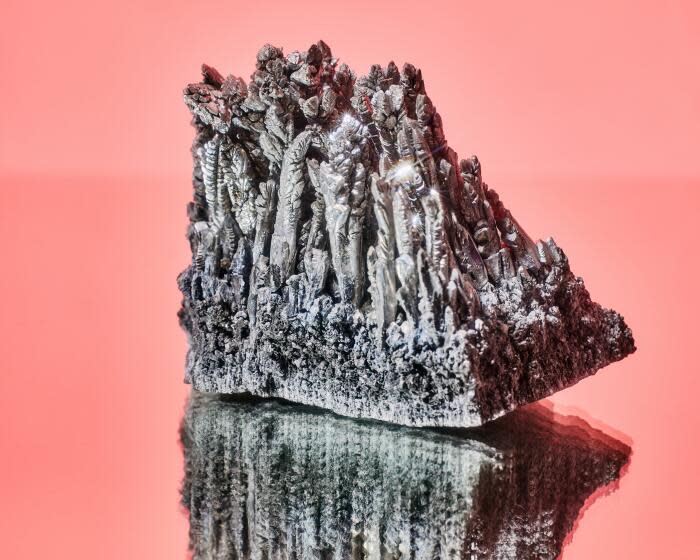
Over dinner in Hollywood, a friend confides that she’s spritzing it on the soles of her feet at night and getting “the best sleep of my life.” At Erewhon in Silver Lake, a noticeably focused and relaxed employee tells me she stirs it into tea for focus and relaxation. In my TikTok feed, a woman tries to end her three-day battle with constipation by chugging it straight from the bottle. (Disclaimer: Don’t.) Her giddy victory speech, full of graphic details that absolutely cannot be repeated here, has 27.8 million views and counting.
All three of these people name the same ingredient as the key to their sweet relief — not some newly patented molecule or ancient herbal extract but one of the most common elements on earth: magnesium.
Read more: 10 under-the-radar spas to rejuvenate in hot water in and around L.A.
After decades of middle-of-the-alphabet anonymity on vitamin store shelves, the humble metal suddenly is taking a star turn in the wellness community, popping up in thousands of posts and even inspiring its own viral recipe, the Sleepy Girl Mocktail. (Tart cherry juice and magnesium powder, with an optional ring light.) Since the online debut of that elixir on TikTok last year, Google searches for “magnesium sleep” have more than doubled, while combined mentions on several other platforms — YouTube, X, Reddit, and Tumblr — have jumped 87%, according to the social media analytics company Sprout Social.
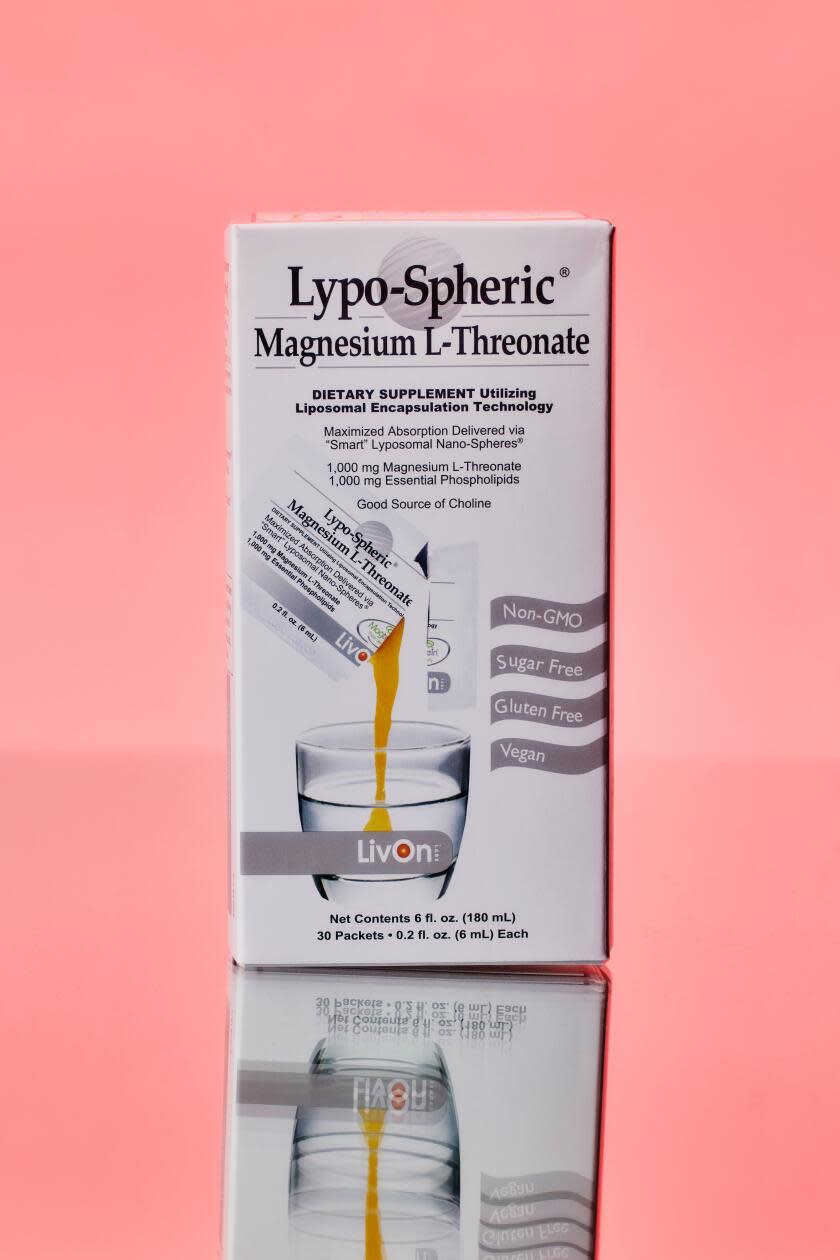
Magnesium’s online success also has been spurred in part by a Cambrian explosion of products and formulations, each adapted for a different niche in the wellness ecosystem. At Alo Yoga in the Grove, you can pick up Magnesium Reset Spray for misting over tense muscles. (“It’s our most popular wellness product,” an employee there told me.) At Malibu Vitamin Barn, you can grab packs of “Lypo-Spheric” magnesium gel, perfect for squeezing into your morning latte. Erewhon sells more than 30 forms of magnesium, each claiming a different benefit: magnesium carbonate for healthy sleep, magnesium bisglycinate for stress relief, ozonated magnesium oxides for better digestion, magnesium L-Threonate for cognitive support — the list goes on. A mere $250 will get you a massage supercharged with “heat activated” magnesium oil at the Conrad Hotel downtown.
Financially speaking, the wellness industry has finally succeeded where centuries of alchemists failed: turning magnesium into gold. Total sales of the supplement in its myriad forms are projected to top $1.5 billion in 2024, according to the Nutrition Business Journal, and there are no signs of slowing down.
Read more: What is a head spa? The luxury L.A. treatment reveals the health of your scalp
“In the last year, we’ve brought in a lot of new magnesium products, and it keeps gaining traction,” said Maren Giuliano, VP of health and wellness at Erewhon, where sales of the supplement are up by more than 50% over last year. “It’s definitely hot right now.”
In the wellness world, this isn’t even magnesium’s first moment in the sun. (Actually, all magnesium started out inside a sun, or rather, inside decaying supernovas where helium and carbon nuclei were fused by unimaginably powerful forces to form new atoms, some of which have had the honor of ending up in Goop’s magnesium-rich Detoxifying Superpowder.)
The first recorded magnesium craze started in 1618, when a farmer in the English town of Epsom noticed that his cows wouldn’t drink from a bitter pool of water. Perhaps seeking some 17th-century form of clout, he decided to drink it himself. He quickly noticed the laxative effect for which Epsom salts would become world-famous, drawing hordes of stopped-up tourists to the town for decades to come.
Over the years, the supplement has been ascribed many medical powers, some more credible than others. In 1934, the New York Times announced a breakthrough discovery by a Johns Hopkins professor who found that “magnesium tends to sweeten the human disposition and that ‘grouchiness’ may be caused in part by the absence of this mineral salt in the system.”
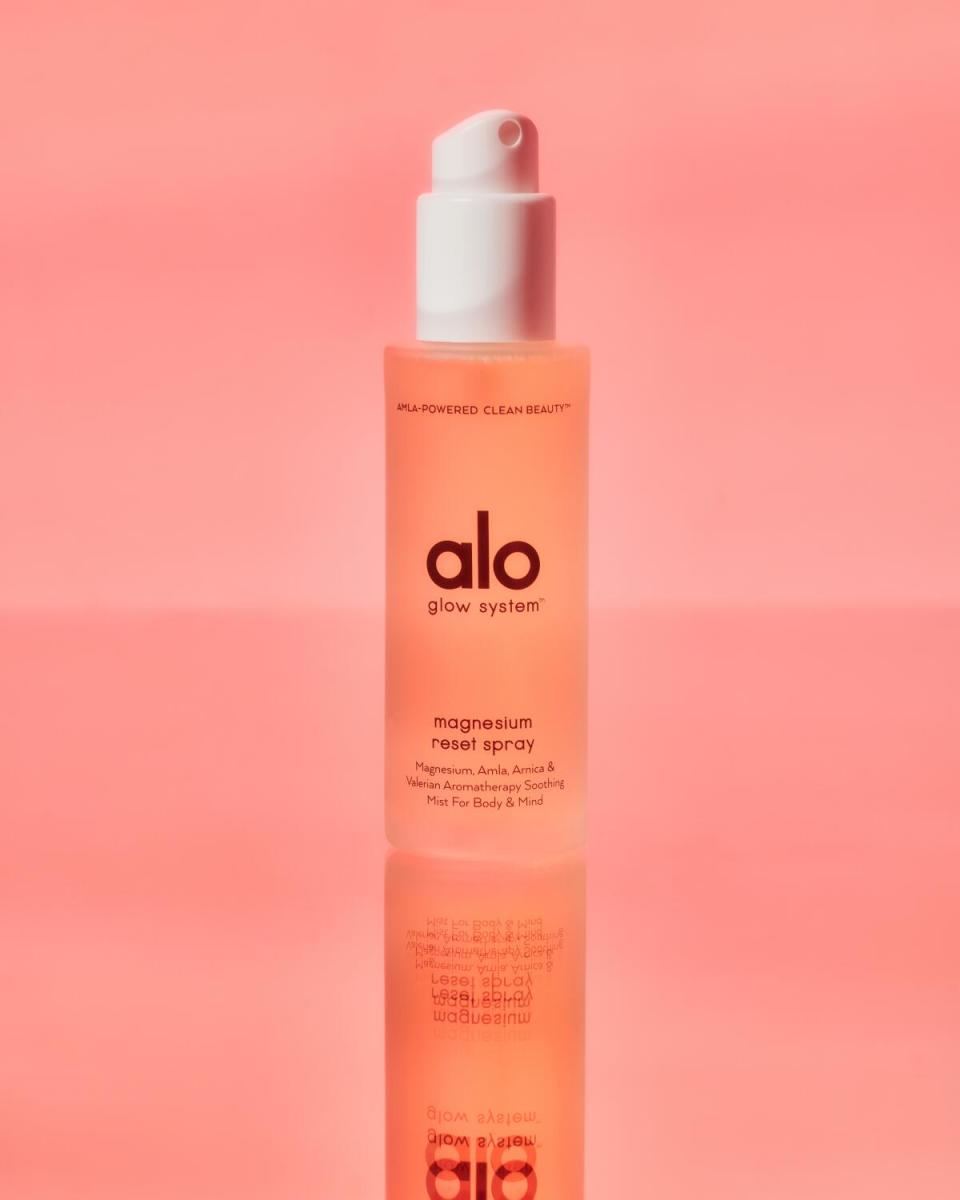
In our current magnesium moment, the supplement is being marketed as a miracle cure for just about everything from muscle cramps to insomnia. The promise that magnesium can soothe, ground and calm us — like a gravity blanket for the mind — is especially alluring in anxious times when prices are surging, wars fill the news and the embers of the pandemic are still smoldering.
As a result, healthcare professionals are fielding a steady stream of questions from patients who are curious about what magnesium can do for them. The answer, according to experts interviewed for this article, could be summed up as: more than you might think, but less than you might hope.
So, what is it good for? Biologically, your body can’t run without magnesium. Unless you have a serious chronic illness, you probably have about 25 grams of it in you right now, mostly in your bones.
Read more: This Pilates class is harder to get into than the Magic Castle
“Magnesium plays many essential roles in the body,” said Dr. Zhaoping Li, director of UCLA’s Center for Human Nutrition. “It’s part of the muscle relaxation process, it’s involved in neurotransmitters. It is an essential part of all cell types. So as you can imagine, lacking it would have wide-spectrum negative impacts on health.”
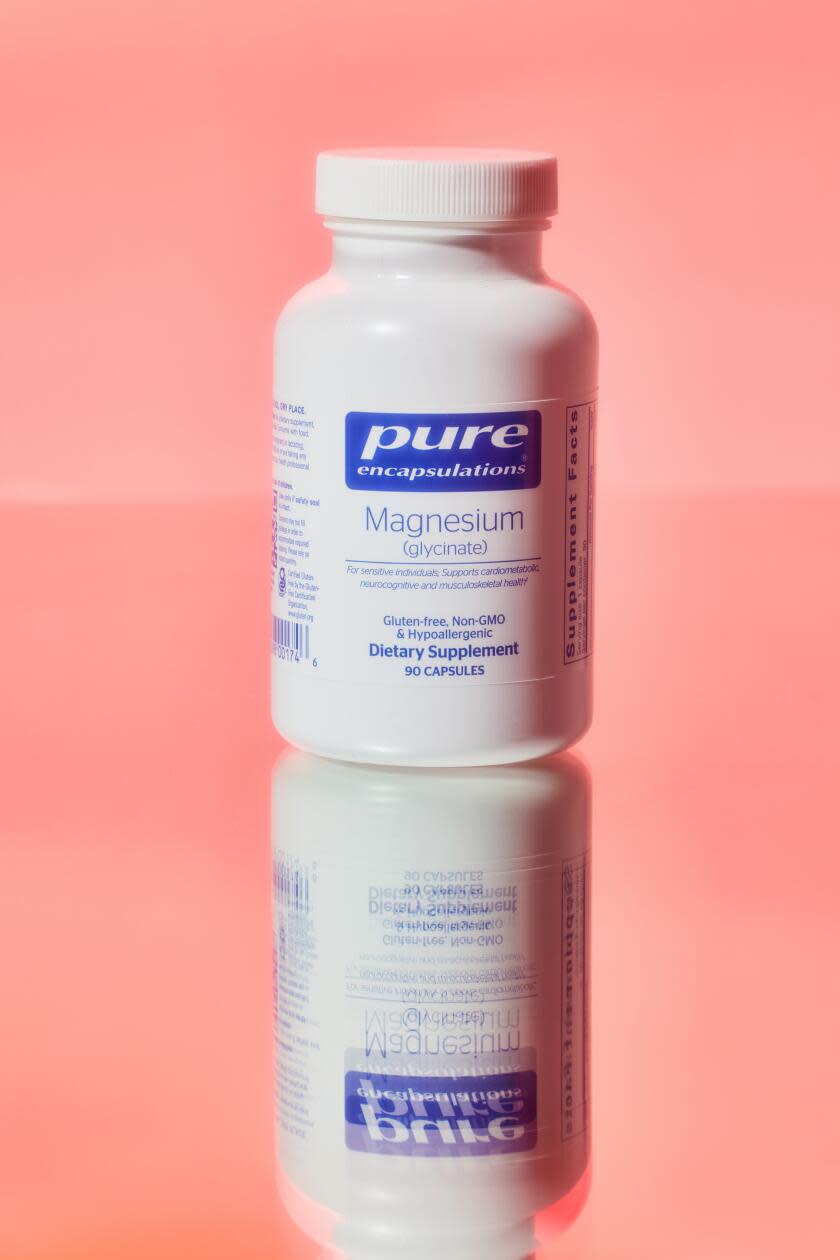
That doesn’t mean you necessarily need to take magnesium supplements, though. While the USDA says that less than half of Americans get their daily recommended dose of magnesium from food, Dr. Li said that medically speaking, deficiency isn’t common in otherwise healthy people. “If anyone has a regular diet, this is not something you would easily lack. The source of magnesium [in food] is pretty wide.”
As for magnesium’s reputation as a slayer of stress and bringer of sleep, the jury is still out, according to Steven Chen, associate dean for clinical affairs at USC’s Alfred E. Mann School of Pharmacy and Pharmaceutical Sciences.
“The science is not extremely strong in this area,” he said. “But there are associations between magnesium supplementation and improvement in depression, improvement in anxiety, in migraine headaches. There are some research reports that suggest that’s the case.”
Still, magnesium success stories are increasingly easy to find.
“It’s like night and day for some people,” said Amanda Cohen, a doctor of Chinese medicine and owner of Sourcepoint Wellness in Atwater Village. "They’re like, ‘I finally slept through the night.'” Cohen has used magnesium in her practice for more than a decade because it has a large range of applications for patients and is generally well tolerated. “It’s already in our bodies, so we’re just supporting it, whether it’s through food or a small dose.”
Read more: How to ease your anxiety when it’s all too much — without dissociating
Despite their different backgrounds, the practitioners I spoke to all agree on a few points. First, supplemental magnesium isn’t a cure-all, no matter how many social media posts may say otherwise. Second, you should consult a healthcare professional before starting any supplements to rule out harmful effects or interactions. (This is especially important for people with any kind of kidney impairment, since excess magnesium is flushed out in urine.) And finally, in sufficient doses, magnesium will almost certainly make at least one thing happen for you. “Magnesium citrate is used before colonoscopies to really get the bowel going,” said Dr. Li. Or, in Cohen’s words, “It can be very moving.” Turns out the lady in the TikTok video wasn’t wrong.
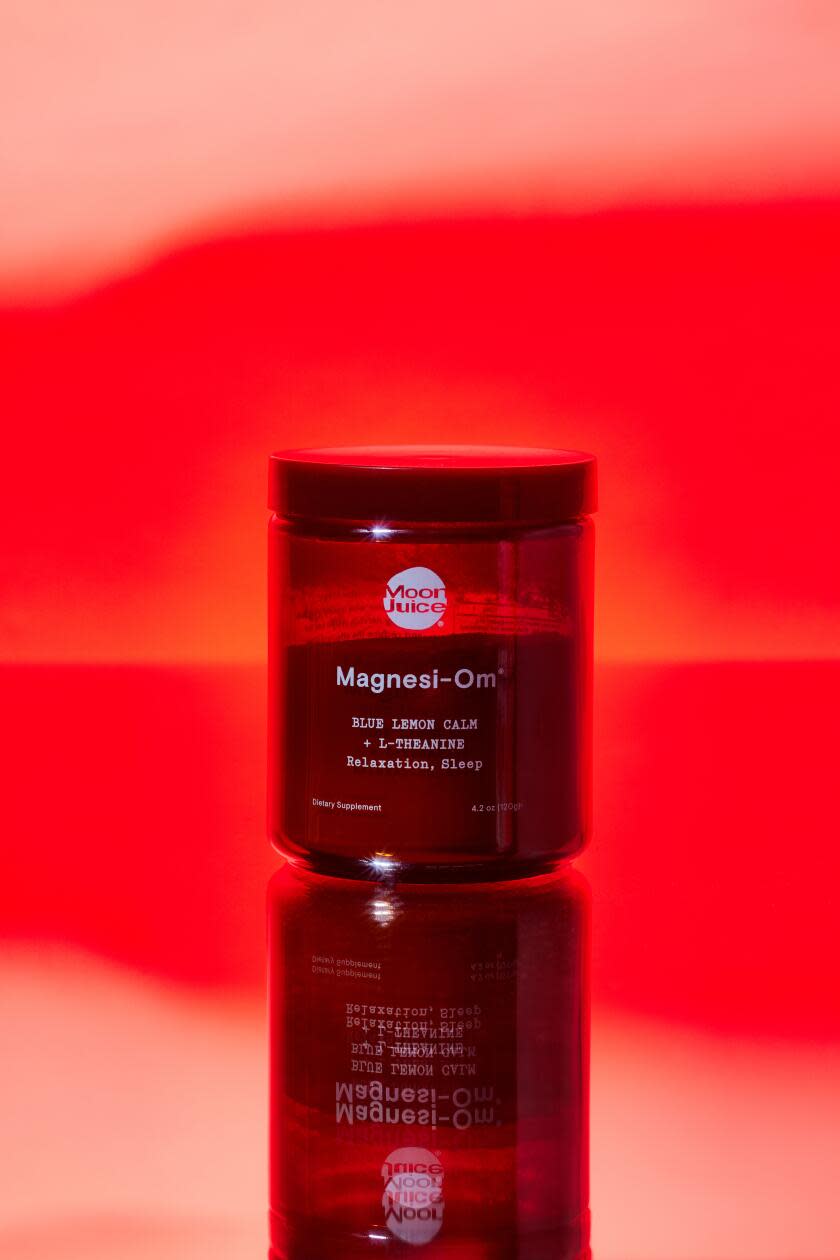
Regardless, magnesium seems poised to stick around in wellness circles — even in L.A., where new health trends arrive with the steady rhythm of ocean waves. When I dropped by Moon Juice in Venice on a clear January day, an employee gave me free samples of the company’s new Magnesi-Om powders, which sprawl across nearly half a wall of display space.
“These are very calming, great for anxiety,” she advised. “And they come in different flavors, in case you don’t like one.”
A few minutes later, I walked up the street to an herbal apothecary that offers rose quartz crystals alongside dropper-bottle tinctures labeled “Happiness.” When I asked if they sell anything with magnesium, an employee turned apologetic.
“No,” she sighed. ”But I wish we did. It’s amazing.”
Adam Markovitz is a writer and editor based in Los Angeles.
Sign up for our L.A. Times Plants newsletter
At the start of each month, get a roundup of upcoming plant-related activities and events in Southern California, along with links to tips and articles you may have missed.
Sign me up.
This story originally appeared in Los Angeles Times.
